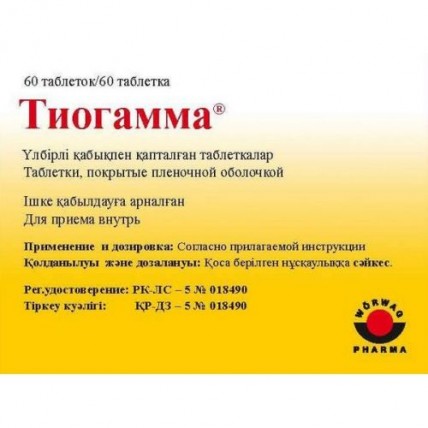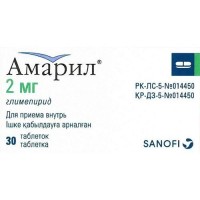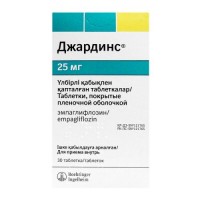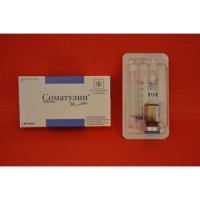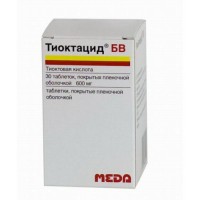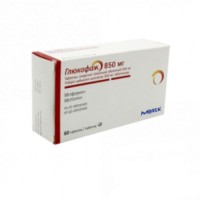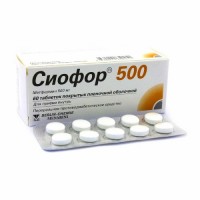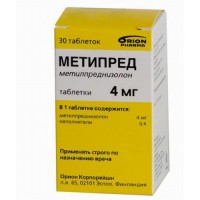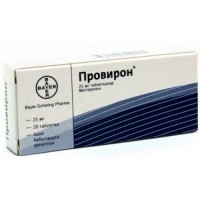Thiogamma® (Lipoic Acid/Thioctic Acid) 600 mg (60 tablets)
- $143.00
Sku:
f1ceee4990b0
Ingredient:
Thioctic Acid
Thiogamma® 600 mg x 60 tablets
Structure
One tablet contains the active substance - thioctic acid (alpha-lipoic acid) 600 mg
Indications for use
- As part of complex therapy for the treatment of peripheral (sensory-motor) diabetic polyneuropathy
Method of administration and dosage
The daily dose of Thiogamma is 1 tablet per day approximately 30 minutes before the first meal. Take on an empty stomach, without chewing and drinking plenty of water. Combination with food intake can reduce the absorption of thioctic acid. It is especially important to take the pill half an hour before breakfast for patients with impaired bowel movement.
The duration of treatment is determined by the attending physician individually.
Since diabetic neuropathy is a chronic condition, Thiogamma tablets can be taken for a long time.
The main requirement in the treatment of diabetic polyneuropathy is optimal control of the course of diabetes.
Side effects
- nausea, vomiting, pain in the stomach and intestines, diarrhea
- skin rash, hives, itching
- dizziness, sweating, headache; changes in visual perception due to a decrease in blood sugar
Rarely
- taste disorder
Very rarely
- since the absorption of glucose is improved during treatment with the drug, a decrease in blood sugar levels is possible. At the same time, symptoms of hypoglycemia develop, such as dizziness, increased sweating, headache, and changes in visual perception.
Contraindications
- hypersensitivity to thioctic acid or to any other component of this drug
- lactation period
- hereditary fructose intolerance, deficiency of the enzyme Lapp-lactase, malabsorption of glucose-galactose
- children and adolescents up to 18 years old
Drug interactions
A decrease in the effectiveness of cisplatin was noted when it was administered simultaneously with Tiogamma. The drug should not be administered concurrently with iron, magnesium, potassium preparations; the time interval between taking these drugs should be at least 5 hours. Since Thiogamma is taken 30 minutes before breakfast, it is advisable to take iron and magnesium supplements at lunchtime or in the evening.
You should not take the drug at the same time as dairy products due to their calcium content.
Since the hypoglycemic effect of insulin or oral antidiabetic agents may be enhanced, regular monitoring of blood sugar levels is recommended, especially at the beginning of Thiogamma therapy. In order to avoid symptoms of hypoglycemia, it is necessary to carefully monitor the level of glucose in the blood, in some cases it may be necessary to reduce the dose of insulin or oral antidiabetic agents.
Special instructions
During treatment with the drug, the use of alcohol is contraindicated. Alcohol consumption is a significant risk factor in the progression of neuropathic clinical presentation and may interfere with the positive result of treatment with Tiogamma. Patients with diabetic polyneuropathy are advised to avoid alcohol consumption in principle. You should also follow this recommendation and during the termination of treatment.
Simultaneous food intake significantly reduces the bioavailability of thioctic acid.
Cases of insulin autoimmune syndrome (IAS) have been reported during treatment with alpha lipoic acid. Patients with the human leukocyte antigen genotype, such as the HLA-DRB1 * 04: 06 and HLA-DRB1 * 04: 03 alleles, are more likely to develop IAS during treatment with alpha lipoic acid. The HLA-DRB1 * 04: 03 allele occurs in Caucasians, with a greater occurrence in southern than northern Europe, while the HLA-DRB1 * 04: 06 allele is found in Japanese and Korean patients.
The IAS syndrome should be considered in the differential diagnosis of spontaneous hypoglycemia in patients taking thioctic acid.
Pregnancy and lactation
Pregnant women should be treated with thioctic acid only after a thorough assessment of the appropriateness of use, taking into account the benefit / risk ratio and under the strict supervision of a physician.
There are no data on the penetration of the drug into breast milk.
Influence on the ability to drive a vehicle and potentially dangerous machinery
Care should be taken when driving vehicles and potentially dangerous machinery, although no special warnings are required.
Overdose
Symptoms: nausea, vomiting, headache.
There have been cases of oral administration of the drug with suicidal intent in the dose range from 10 to 40 grams of alpha-lipoic acid concurrently with alcohol intake, when there was serious intoxication, sometimes with a fatal outcome. The clinical toxicological profile in this case can manifest itself in the form of psychomotor excitability, clouding of consciousness and is usually associated with subsequent generalized seizures and the formation of lactic acidosis.
Cases of glypoglycemia, shock, acute skeletal muscle necrosis, hemolysis, disseminated intravascular coagulation (DIC), bone marrow suppression and multi-organ damage as a consequence of intoxication at high doses of alpha-lipoic acid have been described.
Treatment: symptomatic, no specific antidote.
At the slightest suspicion of probable alpha-lipoic acid intoxication (intake of more than 10 tablets of 600 mg in adults or intake of> 50 mg / kg of body weight in children), immediate hospitalization is indicated with general therapeutic detoxification measures (artificial induction of vomiting, gastric lavage, intake of activated coal).
Treatment of generalized seizures, lactic acidosis and all other life-threatening consequences of intoxication should be carried out in accordance with the principles of modern intensive care for these symptoms. The advantage of using hemodialysis, hemoperfusion, or filtration technology to accelerate the elimination of alpha-lipoic acid has not been convincingly shown.
Storage conditions
In a dry, dark place at a temperature not exceeding 25 o C. Keep out of the reach of children!
Shelf life - 5 years
Do not use after the expiration date printed on the package.
